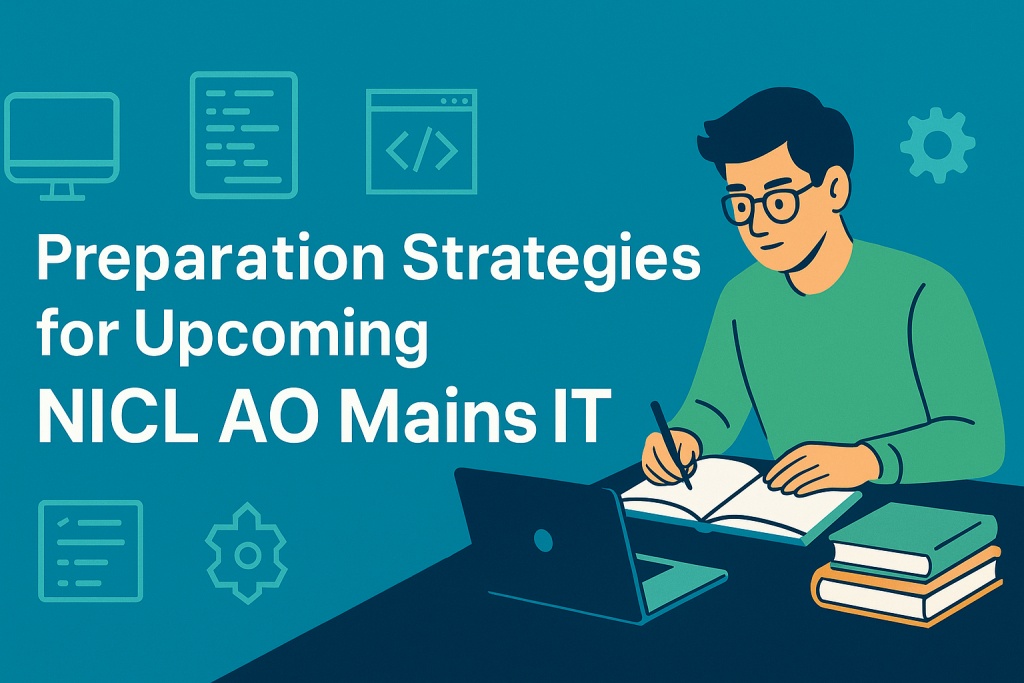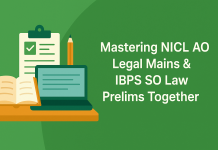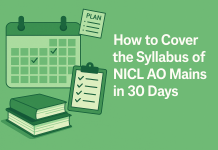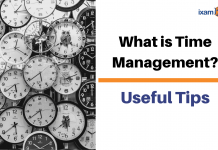The NICL AO Mains IT exam is a crucial step on your journey to becoming an Administrative Officer in National Insurance Company’s IT department. Beyond clearing the prelims, this stage tests not just your technical knowledge, but also your ability to communicate complex ideas clearly and apply them to real‑world insurance scenarios.
Here’s a deeper look at how to craft a study plan, choose the right materials, and build both confidence and competence.

1. Grasp the Exam Structure and Its Intent
Before diving into chapters, take a moment to understand why each section exists. The objective portion examines your breadth—how well you’ve internalised IT fundamentals, networking concepts, database management and security principles.
The descriptive part measures your ability to explain and apply those concepts: Can you write a clear, concise essay on cloud computing’s role in modern insurance? Finally, the interview rewards those who can translate theory into practice—discussing past projects or suggesting improvements to NICL’s IT systems.
By appreciating the purpose behind each stage, you’ll study with greater focus: objective prep becomes about pinpoint accuracy, descriptive practice morphs into storytelling sessions, and interview prep turns into reflective conversations about your own experiences.
2. Craft a Balanced, Flexible Study Plan
A rigid timetable can burn you out; a too‑loose approach leads to procrastination. Aim for a weekly roadmap that blends new learning, revision and practice:
- Weeks 1–2: Foundations & Networking
Spend the first ten days revisiting the OSI and TCP/IP models, understanding how data packets flow, and exploring routing algorithms. Use real‑world analogies—think of OSI layers as international postal services, where each layer adds its own “stamp” until the letter reaches its destination. - Weeks 3–4: Programming & Data Structures
Rather than simply memorising syntax, build small snippets: implement a linked list in C or a binary search tree in Java. This hands‑on approach cements concepts far better than passive reading. - Week 5: Databases & SQL
Picture an insurance database where policyholder records, claim histories and premium payments reside. Write and execute queries—joins, sub‑queries, transactions—to manipulate this mock data. The moment you see a SQL update changing a table in front of your eyes, theory clicks into place. - Week 6: Security & Operating Systems
Frame information security as the digital vault protecting NICL’s customer data. Study encryption algorithms, access control models and intrusion‑detection systems. For OS topics, map processes and threads to everyday tasks—running multiple applications side by side. - Week 7: Emerging Tech & Descriptive Practice
Dedicate a few days to cloud computing (IaaS vs PaaS vs SaaS), blockchain basics and Agile methodologies. Simultaneously, practise writing 200‑word essays on topics like “Benefits of Hybrid Cloud for Insurance Claims Processing.” - Week 8: Mock Tests & Final Revision
Simulate exam conditions with full‑length mocks. Time yourself strictly, review errors carefully, and revise weak areas. Create a one‑page cheat sheet of formulas, OS commands, SQL snippets and security protocols for last‑minute glances.
3. Select Quality Resources, Not Quantity
Overwhelmed by book lists? Here’s how to pick wisely:
- Computer Networking: Tanenbaum’s chapters on fundamental concepts, paired with online quizzes on packet‑tracing.
- DBMS: Silberschatz’s explanation of normalization, supplemented by an interactive SQL platform like LeetCode’s database section.
- Security: Whitman & Mattord’s practical case studies on real breaches, so you learn not just theory but “how it happened.”
- Programming: Use GeeksforGeeks tutorials for quick refreshers; then switch to coding platforms to solidify logic.
Avoid skimming multiple textbooks. Identify one core book per topic and use reputable online articles for updates.
4. Daily Objective Drills with Purpose
Aim for 50–75 MCQs on a focused topic each day—networking on Mondays, SQL on Tuesdays, and so on. But don’t just mark answers: jot down why an option is wrong or right. This analysis helps you internalise patterns and avoid repeating mistakes.
Use spaced repetition for definitions and critical terms. Flashcards for encryption types, HTTP status codes or data‑structure properties are invaluable when you need a quick mental jog.
5. Elevate Your Descriptive Answers
Good descriptive responses tell a story:
- Introduction: Define the topic.
- Body: Explain with examples—e.g., how NICL might use cloud storage to scale its policy management system.
- Conclusion: Summarise benefits and potential challenges.
Practice writing under time constraints. After drafting, revise for clarity—each sentence must add value. Peer review can pinpoint vague expressions or jargon that cloud understanding.
6. Bridge Theory and Practice for Interview Success
The final stage is an opportunity to shine with personal anecdotes. Prepare short narratives about:
- Your best coding project: What problem did it solve, what technologies you used, and what you learned.
- A teamwork challenge: Maybe you led a group assignment or helped debug a friend’s program under a tight deadline.
- An innovative idea: Propose an IT improvement for an insurance company—perhaps integrating AI‑driven claim triaging.
Keep answers concise (1–2 minutes), honest and outcome‑focused.
Final Thoughts
Cracking the NICL AO Mains IT exam is less about last‑minute cramming and more about steady, purposeful progress. Merge technical depth with relatable examples, balance objective drills with creative writing, and translate your own experiences into credible interview narratives. With this descriptive, student‑friendly roadmap, you’ll not only cover the syllabus but truly understand how IT powers modern insurance—putting you one step closer to that coveted AO position. Good luck!













